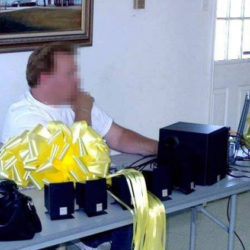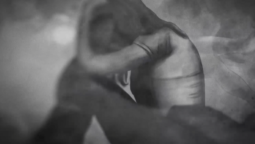Not that everything was perfect back in the day, but there’s been a lot more undercutting going on in this business since the birth of digital music. I was recently undercut for a gig. I guess I wasn’t really undercut, ‘cause the peanuts he was playing for were just his regular rate! Most promoters and club managers want a deal, like anyone else in life they want the most bang for their buck. And much like anything else in the world, nine times out of ten you get what you pay for. When a paying customer comes into a venue, the club should be paying for the best they can get, or an actual professional at the very least, not someone who decided they’ll be a DJ last week. If something costs just a bit more, there’s most likely a reason why.
I was talking to a newer DJ the other day that was bragging to me about the $150 gig he landed and was thrilled about. I asked him was it $150 per hour or for the entire night? You guessed it, the entire night. He told me if he could just get one or two more regular gigs he’d be bringing in $300 or more a week. This guy was so serious about it too. I had to figure out why this was cool to him. I was making $300 and up per gig 20 years ago, and this was when clubs charged $5 or less cover, not $20 and up like they do now!
Two Types of DJs
Here’s the breakdown. Johnny-Come-Lately has a computer his parents bought for him. He downloads music for free on the Internet. So far he hasn’t spent a dime and suddenly gets offered $150 and a few free drinks to DJ at the local bar. He looks at that $150 as basically free money as he has ZERO invested. Thrilled to take it, he’s now calling himself a DJ and his going rate is $150.
Now, on the other side you have your professional DJ that’s spent upwards of $5,000 on a website, turntables, CDJs, controllers, speakers etc. Maybe throw in some business cards and some promo items. There could easily be 10k invested without even thinking about it. He (or she, cause there’s some real dope females out there too) has years of gigs under his belt, knows how to read a crowd and is good at what he does. Those guys ought to be paid accordingly, as they are top notch in their craft. They’ve been around and know the game.
The way it should work is the pro asks for a few simple details from the club manager or promoter: how much is cover, what is the capacity of the club and what’s the usual turnout? Then they come up with a fair booking fee based on the information gathered. Say the club holds 500 people at $20 a head and the manager says it’s packed every weekend. That’s $10,000 made at the door. Doesn’t include any money made at the bar or VIP table sales and bottle service. So the professional DJ says he wants $2000 for the night, which is fair. The promoter or club walks away with $8000 just from the door. Yeah I know about guest list, but if you’re losing more than a couple grand on that, you really need to rethink how you run your door.
The young hungry newbie is so eager to be in the limelight, get free booze and be the cool kid, they go into the venue saying they’ll play for $200. A greedy-ass promoter/club manager will go for it thinking about how much more money they can pocket by cutting corners. The guy they book can’t read a crowd, the quality of his tracks is bad, he doesn’t know when to play the right tunes, he sounds like boots in a dryer when he’s mixing and is just a complete, hot mess.
Who Pays the Price?
Well, the paying crowd isn’t going to like this for too long and after a month or so rolls by, the crowd is off to the next venue, the first spot is now losing most of its income and is on the verge of shutting its doors, all because they wanted to save a few bucks to boost their profit. It always backfires. So in the end the clubs pay the price and dig their own grave when booking a low-priced DJ who’s happily undercutting everybody else.
One thing these new guys don’t understand is that they’ll never get paid the big money by operating like this. Word will get around what their rate is, everyone will know and just laugh at them or hire an actual professional if they start asking for a decent rate.
I’ve seen a lot of these types, as well as the “Free J’s” come and go. They never last. Free J’s are the guys so happy and excited to do it, they offer to play for free to gain exposure and experience. There’s ways to get that exposure, but that’s not it. You want experience? Get on with a DJ and help them. Go to their events and help set up and tear down, learn the ropes and pay your dues. You’ll eventually be “on” and getting what you deserve, and will probably be around much longer in the game.
Another thing undercutting DJs do is set the precedent for pricing. If you have a bunch of undercutters, club owners will generally say “such and such price” is the normal fee they pay. Then the professional is out of work or taking a pay cut to keep food on the table, and at that point no one is getting their fair share of the pie.
Cut-Rate DJs are Killing Themselves
The most damage it does though, is to themselves. Professional working DJs are a tight community and if you’re undercutting everyone else, the word will get around. You can bet none of the other DJs will respect you or help you get booked. A lot of DJs book other DJs for venues or have a team ready to back them up if they’re double-booked, sick, or out of town or on tour. They’re definitely not going to call or help the guy undercutting them, and eventually when the spots they’re playing lose all their clientele, they’ll be without work.
I think one reason there are so many bad DJs these days is cats go to a club and watch a pro that makes it look so easy and flawless. They’re watching and listening, thinking to themselves “I can do this,” so they try. Then they get that free or cheap gig and the next person comes in and sees them and thinks to themselves “He sucks! I can do better than that!” Then they try and you end up with a bunch of non-DJs DJing. And then clubs wonder why they’re closing their doors and why the scene isn’t like what it used to be like?!
Undercutting is a vicious cycle that screws up a lot of things, and at the end of the day it just messes up the whole scene in general. The quality of the music is worse, clubs make less money, DJs make less money, and there’s less opportunity for everybody.






Join the discussion
comments powered by Disqus